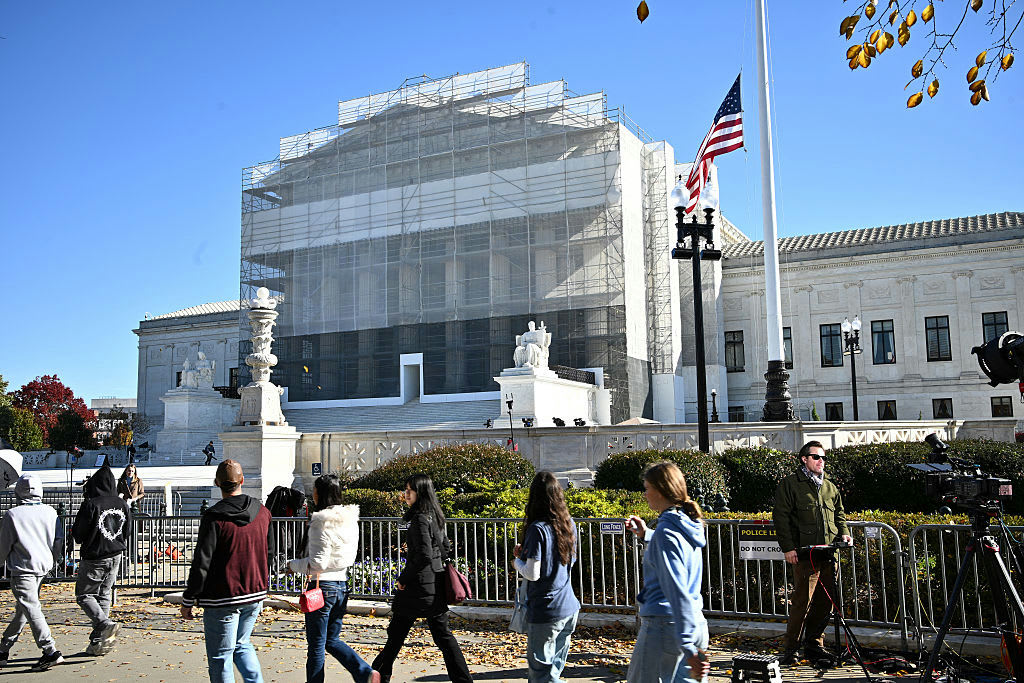More employers making sure they don't see you in court
The phrase "mandatory arbitration" came roaring back to public consciousness this month when Equifax was hacked, exposing the personal credit data of about 143 million Americans. The company initially required -- then rescinded after public outrage -- that customers renounce their right to join class-action lawsuits and negotiate grievances directly with Equifax, a practice known as mandatory arbitration.
Now it's the Supreme Court's turn, and this time it may affect your job. A group of cases tied to the same practice by employers is on the Court's docket for Oct. 2.
The Justices will hear arguments on whether employers are allowed to mandate arbitration for class actions under the Federal Arbitration Act, which says arbitration agreements are irrevocable and enforceable. That conflicts with the National Labor Relations Act, which gives employees the right to band together for "mutual aid or protection," according to Scotusblog. Both laws date back to the 1930s.
Under mandatory arbitration, workers often agree to arbitration in lieu of court action as a condition of employment. That practice is growing faster than ever, a new paper from the left-leaning Economic Policy Institute found.
This year, about 54 percent of non-unionized private-sector employers have such policies, That's up from about 2 percent in 1992 and 14 percent in 2003, according to figures cited in the study, conducted by Alexander Colvin, a Cornell University professor specializing in labor relations, law and history. About 30 percent of these clauses also mandate arbitration for class actions, meaning employees can't sue as a group, either, according to the study.
Mandatory arbitration is even more common among big employers. About 65 percent of private-sector firms with more than 1,000 employees require arbitration in lieu of legal action, according to the study.
And the pace has accelerated in recent years. A 2015 New York Times analysis found the number of arbitration cases tied to labor climbed 215 percent from 2010 to 2014 from the previous five-year period.
The percentage of mandatory arbitration for class actions for employee-related actions may be lower than in consumer products because of the legal uncertainty ahead of the Supreme Court hearing, the EPI study said. In 2015, for instance, the federal Consumer Financial Protection Board found almost every agreement for mandatory arbitration included class-action waivers along with arbitration. (The CFPB issued a rule in July that prohibits the practice. It's set to take effect in March.)
"In the last decade, there has been a marked increase in the number of workers who are subject to these agreements," said Celine McNicholas, the EPI's labor counsel, in an interview.
"This really is a condition of employment" McNicholas said. To say that "in order for you to earn a living at a firm, you are being asked to waive fundamental worker protections that were hard fought, hard won. It's such an unfair position to put a worker in."
In May, the Solicitor General's office changed the position it held under the Obama administration and asked the Supreme Court to rule in favor of employers, according to scotusblog. The Solicitor General supervises and conducts cases before the Supreme Court.
To rule in favor of the companies would mean the Federal Arbitration Act supersedes the National Labor Relations Act, something McNicholas called "unprecedented."
The Cornell study, which surveyed 627 private-sector American businesses from March to July 2017, only looked at non-union employees. In unionized companies, workers typically have representation in a contractual arbitration process and often have access to funds and legal advice.
In addition, arbitrators are often chosen mutually by both sides, depending on the union contract. That puts employees on a more even playing field with the company, EPI's McNIcholas said.





